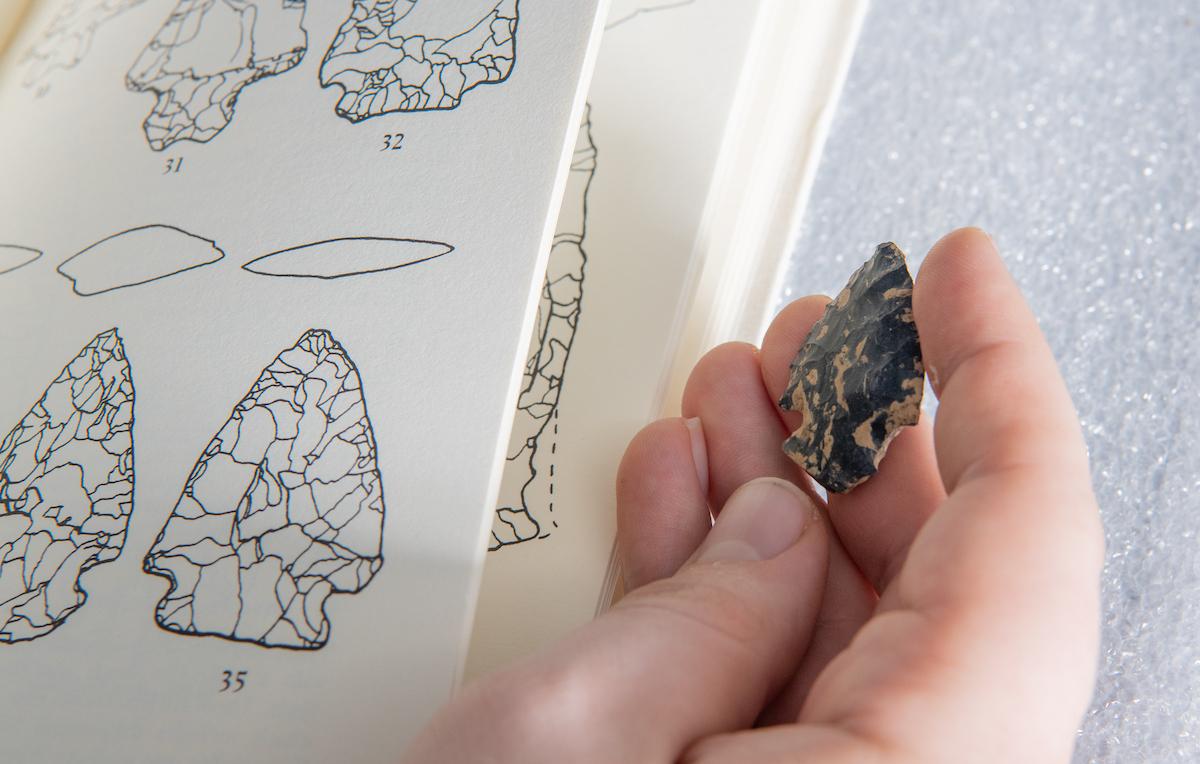OHIO is committed to your lifelong success through our Guarantee+, which offers fixed tuition and fees, a graduation plan and lifelong benefits to our students. We're continuously striving to make college more affordable and accessible, while maintaining the high quality and value of an OHIO education.

Anthropology Major
Anthropology is the study of the human species as a whole; it requires mastery of a variety of fields. The Honors Tutorial program in Anthropology balances a commitment to breadth and rigor with an opportunity for self-disciplined and highly motivated students to explore fundamental and cutting-edge issues creatively.
This is a four-year program during which time students are expected to take a tutorial course each term, along with language, collateral studies and upper-division anthropology courses. This enables students to acquire the full range of skills necessary to successfully continue in graduate study. Students will have excellent opportunities for intensive study with all the faculty members in the department.
Curriculum
Tutorials during the first two years are fixed content: students will take one tutorial in each of the fields of anthropology covered by the department. The second year tutorials will focus generally on theory and method, but may be taken in any of the sub-fields. At the end of the second year, students must declare a field of specialization that will become the focus of their tutorial courses in their third and fourth years.
Tutorials and courses during the third and fourth years will enable students to pursue areas within their specialization in depth and to explore synthetic issues. During the fourth year, students will use their tutorials to develop and write a thesis based on original research.
View Full Curriculum in the Academic Catalog
Honors Tutorials and Thesis
Students complete eight tutorials in anthropology, including the sub-disciplines of archaeology, biological anthropology or cultural anthropology. These tutorials support in-depth study and research under direct faculty mentorship.
Students must also complete a high-quality, advisor-approved thesis that reflects original research and analysis in the field.
Admissions Requirements
This is a selective admission program. Students must demonstrate:
- Exceptional academic performance
- Strong potential for independent study and research
- Submission of additional essays and high school teacher recommendations
- An interview with the director of studies
First-year, transfer, and external applicants are held to the same high standards. More details can be found on the HTC Application Page.
-
Financial Aid & Scholarships
All first-year Honors Tutorial College students admitted for fall semester earn the OHIO Premier Scholarship, valued at full in-state tuition and renewable for four years. Out-of-state HTC students may also earn the OHIO Trustee Award, valued at up to $7,000 annually.
Our Office of Student Financial Aid and Scholarships also provides services to students and parents both in-person and remotely
Career Opportunities
The labor/job market reflects the diversity of anthropology as a field. Past anthropology students from Ohio University have been successful in pursuing careers in professional graduate programs, including medical school, law school, and nursing. Anthropology students have been accepted into top graduate schools in anthropology, social work, forensics, history, and other related fields.
Many received fellowships or research assistantships because of their undergraduate research experiences. They have also entered many governmental agencies, including the Peace Corps, AMERICORPS, VISTA, Park Service, and National Endowment for the Humanities. Students in cultural anthropology often get positions in NGOs focused on US or international development. Archaeology students are employed in cultural resource management firms, historic preservation offices, contract archaeology businesses, or museums. Students in biological anthropology have graduated with positions in forensics labs, zoos, and primate centers.
